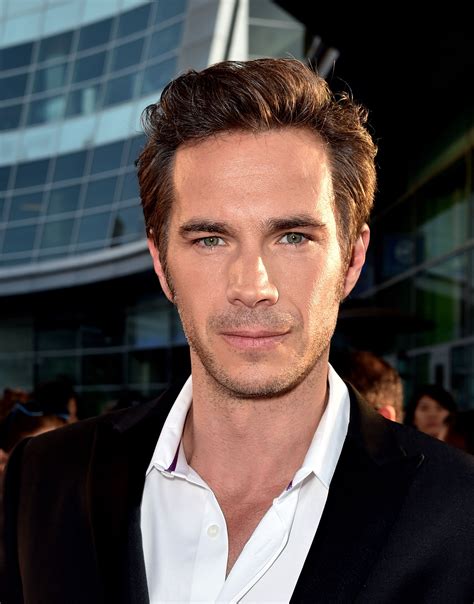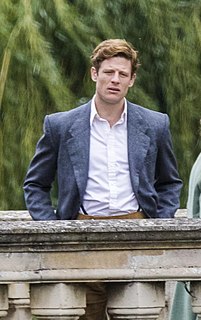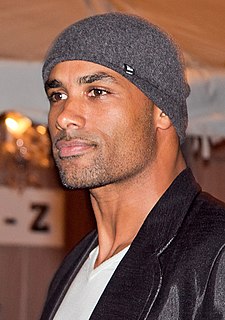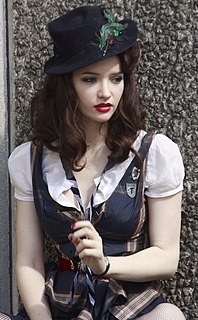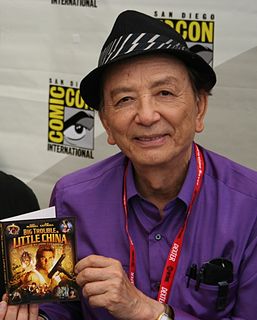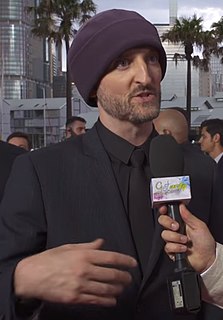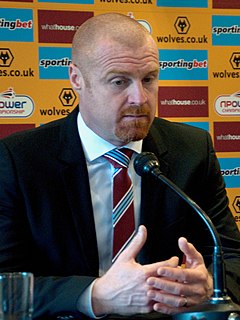A Quote by James D'arcy
All directors on all sets behave slightly differently depending on what the scene is. For example, if you are doing a love scene, which is intimate then the director is likely to be intimate. If you are doing a scene where everyone is mucking around and laughing then the director is likely to start with that. If you are playing a scene which us incredibly heavy and everyone getting killed then there are probably not many laughs on the set.
Related Quotes
It's so not sexy and intimate. There are 40 people in the room. There's a guy with his belly hanging out, with a boom in your face. It's really very technical. I think doing a love scene is tougher than doing a fight scene. It's so staged and you can't put light on her face and you have to hit the mark.
It was (Nick Frost's) first-ever bedroom scene and my first-ever bedroom scene...not that we were actually doing much, but we did have to lie sort of semi-nude under the sheets. And he was incredibly sort of vibrant and outgoing, but then he suddenly got very, like, 'I'm engaged and I'm getting married!' And I was, 'Okay, that's good. I just won't be touching you, then!'
I really like the Chris-R scene and of course the "you are tearing me apart Lisa" scene. The reason I love the Chris-R scene is because we worked really hard to finish it. It's not just that though, it brings people together. Everyone is one the roof together by the end of the scene. You see the perspectives of the different characters. I feel like with all the connections in this scene that the room connects the entire world
Some days are more intense and quiet, and then other days, you feel more relaxed and are able to open up on set. It just depends on what you're doing that day. I like to imagine that all the choices you make during the day that you're doing a particular scene are going to feed into the creation of that scene.
The early music I heard was Top of the Pops. But in bedrooms, around the house with my brother playing the Sex Pistols, Sham 69 and the Ham and all these groups then going into that sort of mod turnover scene and then going into the New Romantics scene the coming of age myself in the mid-eighties and into the noughties, it was changing.
I think one of the things you have to be aware of as an actor is that if you come on the set and see the director standing there mouthing all the words while a scene is going on, that's usually a very bad sign because it means the director has already shot the scene in his head. He knows exactly the rhythm and the nuances that he wants delivered in the line and you're not going to dissuade him.
Some directors don't say much. Michael Mann, for example. I remember on 'The Insider' he never had much to say. He would do a scene, just kind of nod, and then set it up to do it again. And you might do a scene 10 or 12 times or more, the same little 31-second bit. And you could tell he wasn't satisfied, but he wouldn't say much.
